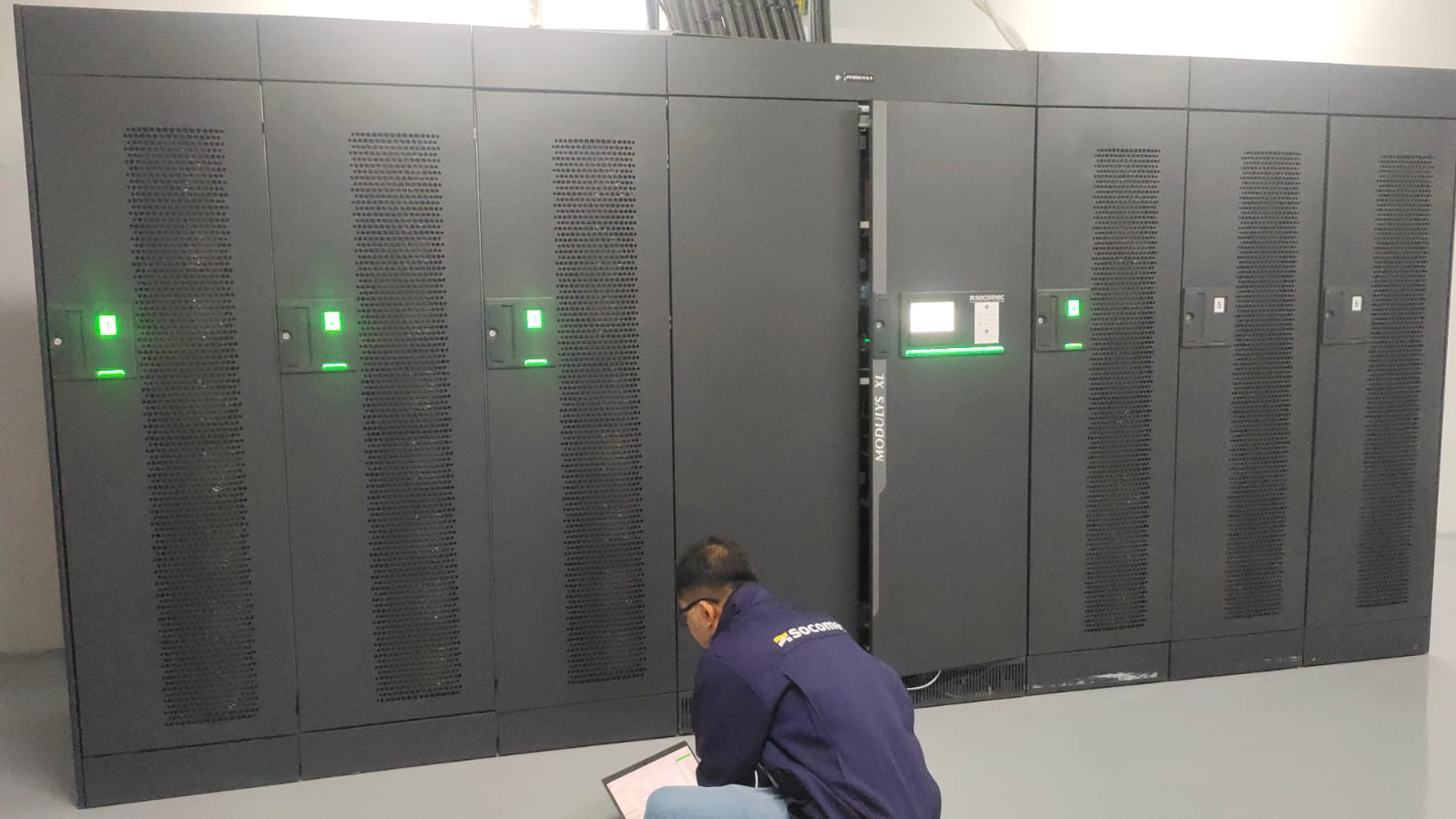The data center industry in Indonesia is growing exponentially to meet the demands of digital transformation. However, this growth comes with significant environmental responsibilities. From managing energy consumption to reducing greenhouse gas (GHG) emissions, water usage, and waste generation, Indonesian data centers must adopt sustainability action plans to align with global environmental goals. As a Distributor Modular UPS Indonesia, Climanusa is committed to supporting data centers in implementing sustainable practices, ensuring efficiency and eco-friendliness.
The Five Pillars of Data Center Sustainability
Sustainability action plans for data centers focus on five key areas: energy, GHG emissions, water, waste, and local ecosystems. Each pillar offers actionable steps to minimize environmental impact and ensure long-term operational efficiency.
1. Energy Efficiency
Energy use is a major factor in data center operations, and improving energy efficiency is crucial to reducing operational costs and emissions.
Actionable Steps:
- Adopt High-Efficiency UPS Systems: Climanusa’s modular UPS solutions are designed to optimize energy use, reducing overall power consumption while ensuring reliable performance.
- Leverage Renewable Energy: Integrating solar and wind energy into backup systems lowers reliance on fossil fuels.
- Monitor PUE (Power Usage Effectiveness): Real-time tracking of PUE helps identify inefficiencies and optimize energy distribution.
2. Greenhouse Gas (GHG) Emissions
Reducing GHG emissions, including Scope 1 (direct), Scope 2 (indirect), and Scope 3 (supply chain-related), is essential for climate resilience.
Actionable Steps:
- Transition to Low-Carbon Fuels: Using biofuels like hydrotreated vegetable oil (HVO) in generators reduces emissions.
- Promote Carbon Offsetting: Invest in renewable energy projects and carbon credits to balance unavoidable emissions.
- Utilize Energy Reuse Technologies: Redirect waste heat for other applications, such as heating nearby facilities.
3. Water Conservation
Water scarcity is a pressing issue in Indonesia, and data centers must prioritize water-saving technologies.
Actionable Steps:
- Implement Water-Free Cooling Systems: Climanusa provides advanced air-cooled systems to minimize water use.
- Adopt Liquid Cooling Where Appropriate: Liquid cooling systems can enhance efficiency while lowering water consumption.
- Monitor WUE (Water Usage Effectiveness): Track and optimize water usage to achieve conservation goals.
4. Waste Management
Data centers generate unique waste profiles, particularly electronic waste (e-waste) and batteries, which must be managed responsibly.
Actionable Steps:
- Develop Circular Economy Programs: Reuse and recycle batteries, servers, and other hardware to minimize landfill contributions.
- Adopt Modular Designs: Modular construction reduces material waste during building phases.
- Track Waste Diversion Rates: Measure and report on the proportion of waste reused, recycled, or repurposed.
5. Local Ecosystem Impact
Data center construction and operation can affect local ecosystems through land use, noise pollution, and biodiversity loss.
Actionable Steps:
- Choose Environmentally Sensitive Sites: Avoid ecologically sensitive areas and adopt designs that preserve local biodiversity.
- Use Sustainable Building Materials: Prioritize low-carbon concrete, recycled steel, and certified sustainable wood.
- Mitigate Noise and Light Pollution: Incorporate soundproofing and directional lighting to minimize disruption to wildlife.
Implementation Framework: Design, Build, Operate, and Maintain
Climanusa advocates for a comprehensive approach to sustainability that spans all phases of a data center’s lifecycle:
- Design and Build:
- Incorporate predictive modeling tools to optimize layouts and resource use.
- Design systems compatible with renewable energy integration and energy reuse.
- Prioritize high-efficiency components, such as eco-mode UPS systems and LED lighting.
- Operate and Maintain:
- Utilize digital monitoring tools for real-time performance analysis.
- Adopt predictive maintenance practices to reduce equipment downtime and waste.
- Regularly update firmware and optimize system settings to maintain peak efficiency.
Why Sustainability Matters for Indonesian Data Centers
Sustainability is not just an environmental responsibility; it is also a competitive advantage. By adopting sustainability action plans, data centers can:
- Meet Regulatory Compliance: Stay ahead of Indonesia’s evolving environmental laws.
- Attract Eco-Conscious Clients: Customers increasingly prefer partners committed to green practices.
- Reduce Operational Costs: Energy and resource efficiency translate into long-term savings.
Conclusion: Building a Sustainable Data Center Industry in Indonesia
As a Distributor Modular UPS Indonesia, Climanusa is proud to play a pivotal role in advancing data center sustainability. By implementing actionable steps across energy, GHG emissions, water, waste, and ecosystem impact, Indonesian data centers can lead the way in building a greener future while maintaining operational excellence.
Climanusa is your reliable partner for sustainable modular UPS solutions, driving efficiency and environmental responsibility for Indonesia’s data centers.
For more information, please click here.
–A.M.G–

